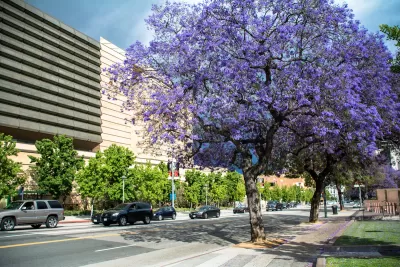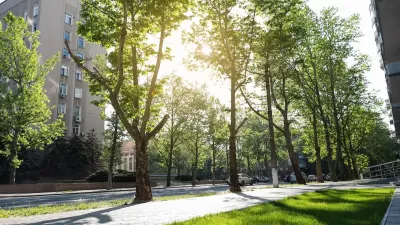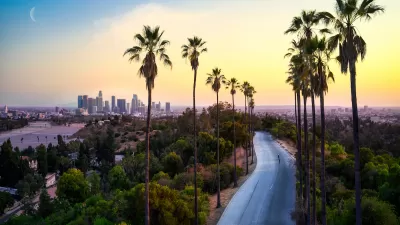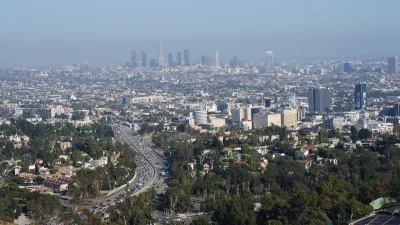The County of Los Angeles Chief Sustainability Office is leading the effort to prepare the county's first Urban Forest Management Plan.

Made up of trees on both public and private lands, the urban forest is an essential part of a healthy, thriving, and resilient community. When spread equitably and supported by other urban greening measures, a well-managed urban forest throughout Los Angeles County can deliver a wide range of benefits, such as healthier soils, biodiversity, habitats, shading from heat, and greater community health and well-being.
The County of Los Angeles Chief Sustainability Office (CSO) is leading the effort to develop an Urban Forest Management Plan (UFMP) which is a blueprint that will guide the planting of new trees and the protection of mature trees throughout the region. OurCounty, L.A. County's Sustainability Plan, calls for the development of the UFMP to ensure a climate-appropriate, healthy urban tree canopy that is equitably distributed. A key goal for the UFMP is to address inequities in the distribution of trees and tree canopy as well as the benefits they offer. Research shows that lower-income neighborhoods and communities of color often have less tree canopy.
In this article, CSO policy analyst Rebecca Ferdman addresses the following important questions and more:
- Compared to most major urban areas, does L.A. have a relatively healthy urban forest?
- Why are trees so important? Both from an ecological point of view and a quality of life point of view?
- What role do trees play in climate change? How can they help us adapt to rising temperatures, wildfires and the like?
- What can we do to make sure that all residents benefit from vibrant tree canopies?
- What kind of trees should we be planting in our communities?
- Is the iconic palm tree maybe a thing of the past?
- What is driving the County's UFMP and what do you hope to achieve?
To learn more, please read the source article.
FULL STORY: Putting Down Roots

Alabama: Trump Terminates Settlements for Black Communities Harmed By Raw Sewage
Trump deemed the landmark civil rights agreement “illegal DEI and environmental justice policy.”

Planetizen Federal Action Tracker
A weekly monitor of how Trump’s orders and actions are impacting planners and planning in America.

Why Should We Subsidize Public Transportation?
Many public transit agencies face financial stress due to rising costs, declining fare revenue, and declining subsidies. Transit advocates must provide a strong business case for increasing public transit funding.

Understanding Road Diets
An explainer from Momentum highlights the advantages of reducing vehicle lanes in favor of more bike, transit, and pedestrian infrastructure.

New California Law Regulates Warehouse Pollution
A new law tightens building and emissions regulations for large distribution warehouses to mitigate air pollution and traffic in surrounding communities.

Phoenix Announces Opening Date for Light Rail Extension
The South Central extension will connect South Phoenix to downtown and other major hubs starting on June 7.
Urban Design for Planners 1: Software Tools
This six-course series explores essential urban design concepts using open source software and equips planners with the tools they need to participate fully in the urban design process.
Planning for Universal Design
Learn the tools for implementing Universal Design in planning regulations.
Caltrans
Smith Gee Studio
Institute for Housing and Urban Development Studies (IHS)
City of Grandview
Harvard GSD Executive Education
Toledo-Lucas County Plan Commissions
Salt Lake City
NYU Wagner Graduate School of Public Service





























